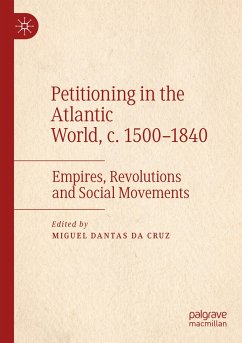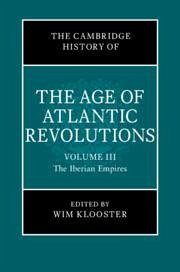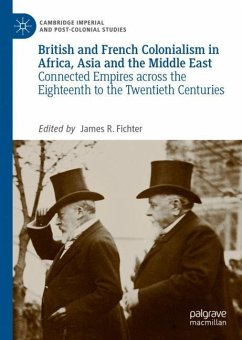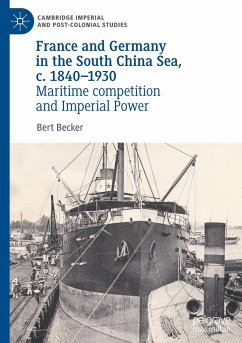
Petitioning in the Atlantic World, c. 1500-1840
Empires, Revolutions and Social Movements
Herausgegeben: da Cruz, Miguel Dantas

PAYBACK Punkte
0 °P sammeln!
This book deals with one of the most pervasive ways by which people have addressed authority throughout history: petitioning. Based on a Congress held at the Instituto de Ciências Sociais da Universidade de Lisboa (Petitions in the Age of the Atlantic Revolutions), in February of 2019, the book explores traditional practices and institutions, as well as the transformation of petitions as vehicles of popular politics. The ability or the right to petition was also a crucial element for the development and operation of early modern empires, playing a major role on the negotiated patterns of the ...
This book deals with one of the most pervasive ways by which people have addressed authority throughout history: petitioning. Based on a Congress held at the Instituto de Ciências Sociais da Universidade de Lisboa (Petitions in the Age of the Atlantic Revolutions), in February of 2019, the book explores traditional practices and institutions, as well as the transformation of petitions as vehicles of popular politics. The ability or the right to petition was also a crucial element for the development and operation of early modern empires, playing a major role on the negotiated patterns of the Atlantic World. This book shows how petitions were used in Europe, America and Africa, by the governors and the governed, by the rich and the poor, by the colonists and the colonised and by the liberal and the reactionary groups. Broken down into three thematic parts, encompassing both in chronological and geographical scope, the book deepens our understanding of petitioning and its relation with ideas of consent and subjecthood, nationality and citizenship, political participation and democracy. This book provides a rare comparative platform for the study of a subject that has been receiving growing interest.












